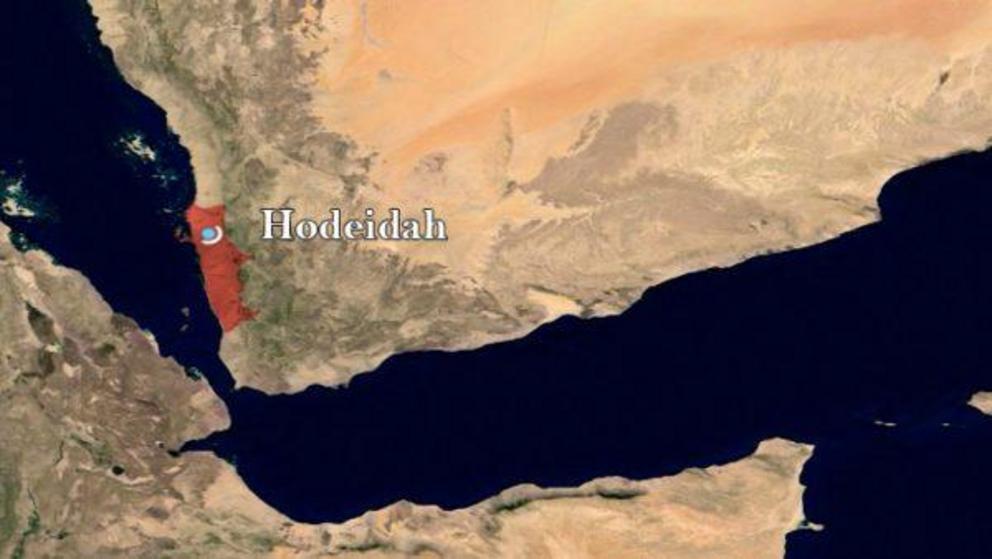Saudi Coalition launches massive attack on Hodeida
... after sabotaging peace talks
One day before the attack on Hodeida began, the Saudi coalition, which imposes restrictions on Yemen’s airspace, banned a delegation of negotiators, including the Houthis from flying to Geneva to attend UN-brokered peace talks.
HODEIDA, YEMEN — The U.S.-backed, Saudi-led coalition launched a massive military offensive against the Red Sea port city of Hodeida last night. The new attack is aimed at capturing the populated city, despite warnings by the United Nations and international rights groups that the move would have catastrophic humanitarian repercussions.
The coalition attack on the city began from the air and sea and involved Apache helicopters, battleships. and ground forces. Coalition militias are comprised of the Giant’s Brigade and militants, including al-Qaeda and ISIS fighters, who have fought alongside the coalition in Yemen. Military armored vehicles, foreign mercenaries, and coalition aircraft have provided cover for the operation.
Yemenis from other parts of the small nation have rushed to the port city to assist the Houthis and Hodeida`s residents in repelling the attack, which has put Hodeida’s over 250,000 residents trapped in the old city at immediate risk. Moreover, there has been a mass exodus of the city’s sizable population of internally displaced peoples.
Saudi-led fighters claim to have captured five villages in the al-Durahimi district surrounding Hodeida — including Wadi al-Aaq, Wadi al-Mashqana, Lower Jubraiba, Upper Jubraiba, and Wadi al-Zaafran. Colonel Aziz Rashid, a Yemeni army spokesman, refuted the claim, saying, “we deny the validity of Saudi-led Coalition`s claims to control sites in Hodeida and Sa’ada.”
The attack on Hodeida comes amidst a third wave of cholera ravaging the province. Over 1.1 million cholera cases have been reported across Yemen from April 27, 2017 to September 2, 2018. Hodeida has reportedly seen 175,075 cases, the highest of Yemen`s governorates, according to a statement from Yemen`s Health Ministry.
In response to the attack, the Yemeni Army, loyal to the Houthis, fired four ‘Badr 1’ ballistic missiles at the Jizan strategic economic area located 967 kilometers southwest of Saudi Arabia’s capital, Riyadh. Two of the missiles reportedly struck the Jizan International Airport, and one a Saudi National Guard base in the southern province of Najran. The Abha International Airport was also attacked by Yemeni Army drones. Saudi Arabia reported casualties at the National Guard base, saying, “the attack on the National Guard camp left at least 37 killed and wounded.”
Saudis block Houthi negotiators from traveling to Geneva
One day before the attack on Hodeida began, the Saudi coalition, which imposes restrictions on Yemen’s airspace, banned a delegation of negotiators, including Houthis and members of the General People’s Congress (GPC), from flying to Geneva to attend UN-brokered peace talks.
Representatives from Yemen’s Houthis as well as from the country’s former regime, backed by Saudi Arabia, were supposed to participate in the talks in the Swiss city on Thursday. Saudi sabotage of the talks indicates that the coalition does not desire an end to the crisis in Yemen. That sentiment was reflected in interviews conducted by MintPress News with Yemeni civilians in the north and south of the country on Friday.
The Saudi-led coalition continues to refuse an Omani plane permission to land in Yemen’s capital to take the delegation to Geneva, a Houthi source confirmed to MintPress on Friday. UN spokesman Martin Griffith said in a statement that he remained hopeful the Houthis would attend the talks.
The Saudi-led coalition opposes what it sees as conditions set by the Houthis for the talks in Geneva to proceed. These conditions include:
The transportation of wounded personnel to Oman for medical care; the repatriation of Yemenis who have received treatment in Oman and have been blocked by Saudi Arabia from returning to Yemen; and a guarantee that the Houthi delegation will be allowed to return to Sana’a after the Geneva talks.”
According to the Houthis, the UN promised the Sana’a negotiating delegation that it would be allowed to transport its wounded on the UN-chartered flight. The coalition has imposed an air, sea, and land blockade on Yemen since 2015, when the war began, leaving thousands of civilians, including children, without access to much-needed medical care.
The UN invited Yemen’s warring parties to Geneva for peace talks on September 6 to discuss a framework for negotiations, relevant confidence-building measures, and specific plans for moving the process forward and bringing an end to the years-long crisis.
Meanwhile, in Aden in southern Yemen, multiple demonstrators were killed and others injured when clashes broke out between opposing protesters, who blocked major roads and burned tires. The protesters, who were demonstrating against Yemen’s economic woes, chanted slogans against the coalition forces and tore up images of coalition leaders.
In Sana’a, in northern Yemen, angry demonstrators took to the streets on Friday voicing anger at the worsening economic situation. They also chanted slogans against Saudi Arabia and the UAE.

